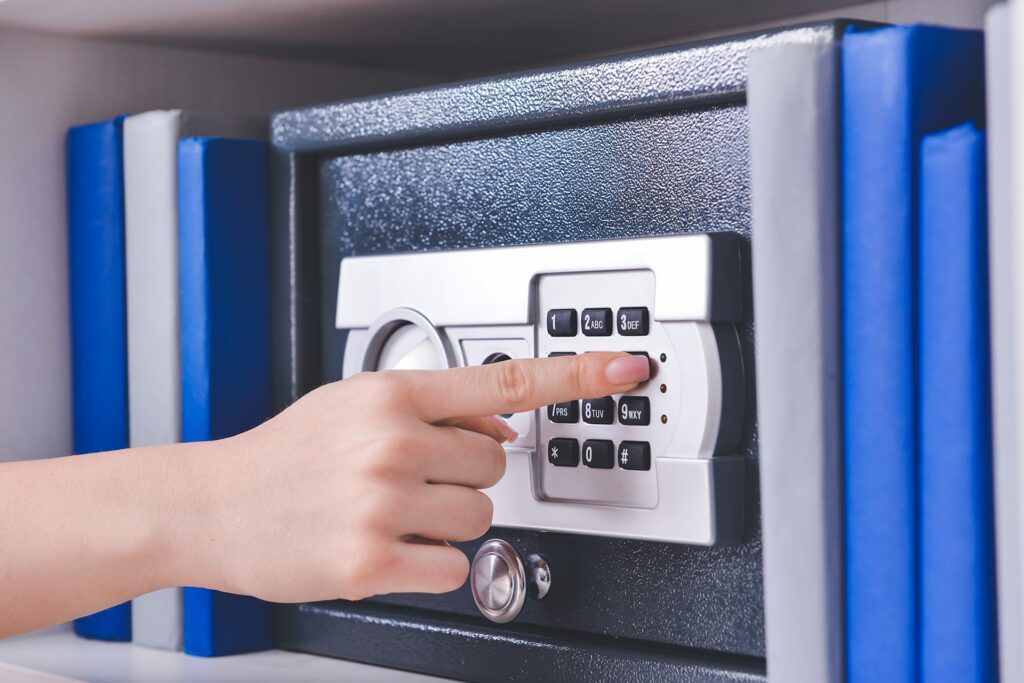Table of Contents
When making a significant purchase like buying a car, renting an apartment, or obtaining a mortgage pre-approval, providing proof of income becomes an essential step in the process. While individuals employed by companies often encounter no hurdles in providing this documentation, self-employed individuals face a unique challenge. For those who are their boss and employee rolled into one, how does one navigate the path to securing a mortgage?
Is it Hard to Get a Mortgage When You’re Self-Employed?
Many self-employed individuals often worry about their eligibility for a mortgage, but we’re here to bust some myths. There are several misconceptions around the topic, one being that getting pre-approved for a home loan as a self-employed individual is out of reach. The truth is that although more documentation is required, obtaining a mortgage when you’re self-employed is entirely possible. With the right home buying team by your side, the process can be smooth and seamless.
Another misconception is that self-employed borrowers are limited when it comes to choosing the right loan program. Realistically, self-employed borrowers can apply for all the same loans “traditionally” employed borrowers can, but selected loans may have stricter guidelines.
To ensure a successful mortgage application, it’s crucial to work with a mortgage lender experienced in catering to the needs of self-employed individuals. For example, RWM Home Loans has an extensive background in assisting self-employed applicants and understanding the challenges they face. Openly communicate your situation to your chosen lender and allow them to provide you with the most suitable options tailored to your financial needs.
Self-Employed Mortgage Requirements and Eligibility
Ready for the fun part? Let’s talk about eligibility and documentation. Eligibility for a mortgage as a self-employed individual is determined by several factors. While requirements may vary among lenders, here are some common criteria and documentation you will need:
Income History: Lenders want to see a stable income history to determine your ability to repay the mortgage. Ideally, you should have a minimum of two years of self-employment income.
Proof of Income: To verify your income, you will need to provide the following documentation: personal and business tax returns, a year-to-date profit and loss statement, and some alternative documentation programs will accept the most recent 12 months’ bank statements for your business showing the cashflow for the business.
Business Documentation: Lenders will want to verify the legitimacy of your business. We may need to obtain a copy of your business license or registration or request a letter from your CPA or accountant certifying the nature of the business and how long it has been established.
Debt: Having debt does not exclude you from homeownership, but because lenders assess your debt-to-income ratio to determine your financial situation, be ready to disclose any personal outstanding debts, loans, or obligations. In most circumstances, we can exclude business debts or loans from your personal mortgage application.
Credit History: Maintaining a good credit history is vital when applying for a mortgage. Ensure your credit report is accurate and up to date. If you would like to repair your credit score before moving along in the process, we have a few tips to help.
Personal Identification: Provide valid identification documents such as your passport or driver’s license.
Keep in mind that these requirements may vary depending on the lender, your financial situation, and the type of mortgage you’re applying for. Consult with a loan officer who is experienced in working with self-employed individuals, so that they can guide you through the process, help you understand specific lender requirements, and ensure you gather the necessary documentation to increase your chances of getting pre-approved.
Pros and Cons of Getting a Mortgage When You’re Self-Employed
While getting a mortgage as a self-employed individual is not impossible, it still comes with pros and cons.
Pros
Potential for Higher Loan Amounts: Is your business thriving? As a self-employed individual, your income may not be limited to a fixed salary. If your business is generating substantial profits, it could increase your borrowing capacity, potentially allowing you to qualify for a higher loan amount.
Flexibility in Income Reporting: Do you have irregular income patterns? Unlike traditional employment, self-employment offers flexibility in how you report your income. Depending on the lender, you may have options to utilize alternative methods for verifying income, such as bank statements, gross deposits, or asset-based lending.
Tax Benefits: What happens when tax season rolls around? Self-employed individuals often have access to various tax deductions and write-offs related to their business expenses. By deducting legitimate expenses, your taxable income may be reduced, potentially increasing your mortgage affordability or decreasing your tax liability.
Cons
Documentation Requirements: Are you prepared with your documentation? Obtaining a mortgage as a self-employed individual typically requires more extensive documentation compared to those with traditional employment. Lenders often request multiple years of tax returns, financial statements, and other financial documentation to determine your financial stability and creditworthiness. This paperwork can be time-consuming and requires careful organization.
Income Volatility: Do you find your income fluctuating? Self-employment income can be volatile, with fluctuations from month to month or year to year. Uneven income patterns might make it challenging to qualify for certain loan programs or affect your interest rates.
Potentially Higher Interest Rates: What interest rate is ideal for you? Self-employed borrowers might face slightly higher interest rates compared to traditional employees. Lenders may perceive self-employment as a higher risk factor due to income volatility or lack of guaranteed income. However, this can vary depending on your financial profile, credit history, and the lender’s specific guidelines.
Dos and Don’ts When Getting a Mortgage as a Self-Employed Individual
To ensure a great experience with as few obstacles as possible, there are some takeaways you should take into account when getting pre-approved while self-employed.
The Dos:
- Organize Your Financial Records: Keep your financial documents well-organized and up to date. This includes tax returns, profit and loss statements, bank statements, and any other relevant financial records. Having a clear and comprehensive documentation system will streamline the mortgage application process.
- Maintain Consistent Income: Aim to maintain a consistent stream of income. Lenders prefer to see a stable income history, so it’s beneficial to show a steady stream of revenue and profits from your self-employment, which can be achieved by adopting effective financial management and maintaining healthy business practices.
- Keep Personal and Business Finances Separate: Keep separate bank accounts and financial records for your personal and business finances. This separation helps provide clarity and transparency when documenting your income and expenses.
- Prepare for a Larger Down Payment: While it’s not a requirement, a larger down payment can increase your chances of mortgage approval. It demonstrates your commitment and reduces the lender’s perceived risk. Additionally, a larger down payment may result in better interest rates and potentially help you avoid private mortgage insurance (PMI).
The Don’ts:
- Don’t Make Sudden Changes to Your Business: Avoid making significant changes to your business structure or financial situation before applying for a mortgage. Lenders prefer stability and consistency. Major changes, such as switching business types, forming a partnership, or altering income sources, could raise red flags for lenders. It’s advisable to postpone any substantial changes until after securing a mortgage. Our team understands some changes may be critical and unavoidable, we will work with you under these circumstances whenever possible.
- Don’t Overstate Your Income: While it’s essential to highlight your financial strengths, it’s equally important to be honest and accurate when reporting your income. Avoid inflating your earnings or misrepresenting your financial situation. Lenders will conduct thorough verification and any inconsistencies may lead to rejection or legal consequences.
- Don’t Neglect Your Credit Profile: Maintain good credit practices by paying bills on time and reducing outstanding debts. Neglecting your credit can negatively impact your mortgage application. Regularly review your credit report, address any errors promptly, and work on improving your credit score if needed.
- Don’t Apply for New Credit Lines or Loans: Before and during the mortgage application process, avoid opening new credit cards, taking on additional loans, or making large purchases. These actions can increase your debt-to-income ratio and raise concerns for lenders about your ability to manage additional financial obligations, such as a mortgage.
Remember, these dos and don’ts serve as general guidelines and individual circumstances may vary. It’s crucial to consult with your home buying team who can provide personalized advice based on your specific financial goals.
Self-Employed Individuals Can Be Homeowners!
All in all, obtaining a mortgage as a self-employed individual may require some additional effort, but it’s certainly achievable! It goes without saying that you have accomplished several milestones to get where you are and we want to help you take the next step in your financial future by securing your dream home.
By keeping organized records, maintaining a stable income, and working with a knowledgeable loan officer, you can navigate the process successfully. Remember to provide thorough documentation, build a strong credit history, and save for a substantial down payment to increase your chances of getting pre-approved for a mortgage. While it may present unique challenges, being self-employed should not deter you from achieving your homeownership dreams.
If you ever feel stressed going through the home buying process, we have a few tips to keep you pushing through the finish line.







